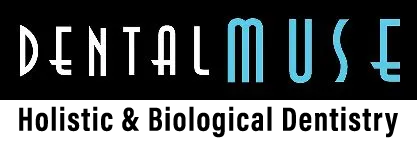Tips for National Dental Hygiene Month
Tips for National Dental Hygiene Month
October is National Dental Hygiene Month, a time dedicated to recognizing the important role dental hygienists play in keeping our community's smiles healthy and bright. From removing stubborn tartar to guiding patients on home care, hygienists are essential defenders against oral health problems. Here are 10 essential tips these experts want you to know to keep your smile in tip-top shape for years to come.
10 Essential Tips Your Dental Hygienist Wants You to Know
1. Do not Skip Regular Hygiene Cleanings
Even the most diligent brushers and flossers have a hard time reaching every nook and cranny of their smile. When plaque is left on these hard-to-reach areas for more than a day or two, it hardens into tartar that cannot be removed with a toothbrush. Your hygienist uses special tools at cleaning appointments to remove this stubborn buildup, preventing cavities and gum disease.
However, these semi-annual visits offer much more than just a deep clean for your smile. Your hygienist also uses this time to assess your gum health, spot early warning signs of potential problems, and provide personalized tips to enhance your daily oral care routine.
2. Brush Twice Daily with Purpose
You have probably heard to brush twice a day since childhood, but your hygienist cares just as much about your technique as your consistency. Use a soft-bristle toothbrush and spend a full two minutes brushing all tooth surfaces, dedicating about 30 seconds to each quadrant of your mouth. Focus on gentle, circular motions rather than aggressive back-and-forth scrubbing, which can wear down your enamel and irritate your gums over time.
3. Make Flossing a Non-Negotiable Habit
Did you know that only 4 in 10 people floss daily? Flossing tackles the tight spaces between the teeth and around the gumline that your toothbrush simply cannot reach. This quick daily habit removes harmful plaque, bacteria, and food particles, significantly reducing your risk of cavities between teeth and gum disease. If string floss feels challenging to use, floss picks or a water flosser can make the process easier and more convenient while still delivering great results.
4. Choose Fluoride Toothpaste
Fluoride is nature's cavity fighter. This powerful mineral strengthens tooth enamel and helps your teeth resist acid attacks from harmful bacteria. Using fluoride toothpaste provides extra protection against cavities and helps reverse early stages of tooth decay. Ask your hygienist for product recommendations tailored to your specific needs at your next cleaning.
5. Remember to Clean Your Tongue
Your teeth are not the only part of your mouth that needs attention for optimal oral health. Your tongue’s rough surface provides the ideal environment for bad-breath bacteria to accumulate and thrive. Use a tongue scraper or gently brush your tongue each time you brush your teeth to reduce these odor-causing bacteria and improve your overall oral hygiene.
6. Replace Your Toothbrush Regularly
Toothbrushes do not last forever. Worn and frayed bristles lose their effectiveness at removing plaque and debris. Replace your toothbrush or toothbrush head every three months to ensure you are getting the most thorough clean. Marking your calendar or setting a phone alert is an easy way to stay on track with this swap.
7. Limit Sugary Snacks and Beverages
It is okay to enjoy a sweet treat sometimes. However, snacking on sweets and sipping sugary beverages throughout the day can significantly impact your oral health. Sugar feeds harmful bacteria in your mouth, which produce acids that erode tooth enamel over time. Save sweet treats for special occasions or enjoy them with meals when saliva production is higher to help protect your smile.
8. Stay Hydrated with Water
Staying hydrated is one of the simplest strategies for better oral health. Water rinses away food debris, supports natural saliva production, and helps maintain a neutral pH balance in your mouth. Drinking fluoridated tap water provides additional protection against tooth decay. Keep a water bottle with you at work, school, and throughout the day to stay on top of your hydration.
9. Chew Sugar-Free Gum
Gum is not only a natural breath freshener, but it can also promote better oral hygiene. Chewing sugar-free gum after meals stimulates saliva flow, which naturally neutralizes acids and washes away food particles. Look for gum containing xylitol, which actively reduces cavity-causing bacteria. Skip the sugar-based options that work against you by feeding harmful bacteria instead.
10. Nourish Your Smile with Smart Food Choices
What you eat has a big impact on your oral health. Foods rich in calcium and phosphorus, such as leafy greens, cheese, and nuts, help strengthen tooth enamel and keep it resilient. Crunchy fruits and vegetables such as apples and carrots naturally clean your teeth while boosting saliva flow. A healthy diet paired with a diligent oral hygiene routine helps protect your teeth, strengthen your gums, and support long-term oral health.
Your Oral Health Partner
National Dental Hygiene Month serves as a reminder that prevention and daily habits form the foundation of excellent oral health. Take a moment this October to schedule your next cleaning and thank your hygienist for their dedicated care. Together, you can build the daily habits that lead to a healthy, confident smile for years to come.

